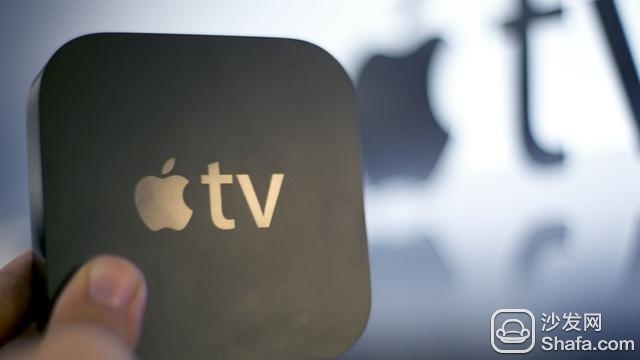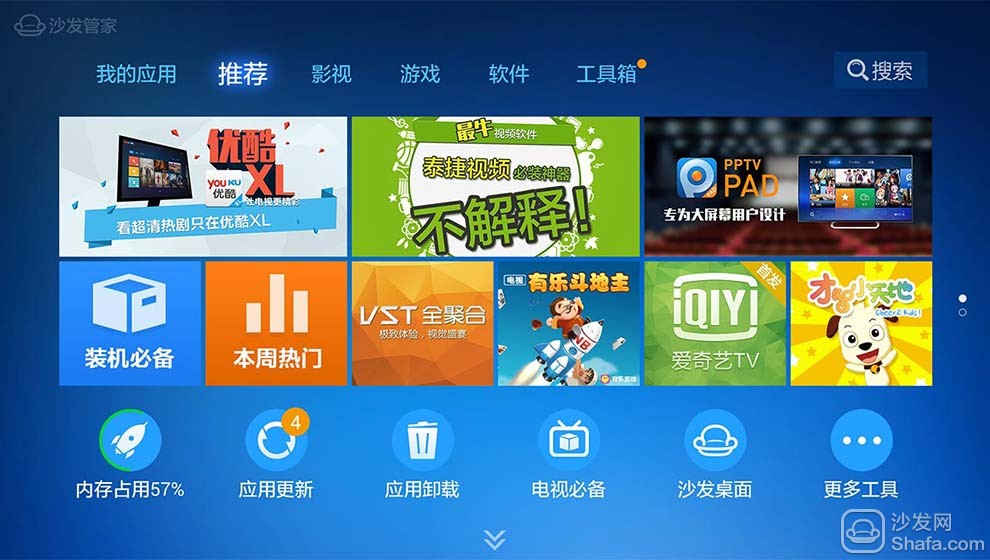At Apple New Year's New Product Launch Conference last month, Apple Watch was undoubtedly the protagonist of the audience, but Cooke immediately announced that AppleTV's price cuts gave us an unexpected surprise. With Apple's growing emphasis on the Chinese market, this has also set off a new round of discussions on whether Apple TV can enter the Chinese market.
In fact, the rumors about the entry of Apple TV into the Chinese market have been long-standing, and everyone's discussion is still limited to their own prices, content, and services. After last year’s policy crackdown on the OTT box market, what role Apple TV will play once it enters the Chinese market, and whether the “Apple advantage†that has always been domineering will inspire people’s desire to buy becomes the industry’s once again Focused topics.

How to play in the domestic box market
In fact, the entire TV box market was still thriving before last year. Whether it was the so-called regular box or the popular Shanzhai cargo, they all started to have consumers at the time when the smart TV was not yet fully popular. A round of offensive, various products such as springing up. However, it was not long afterwards. From July and August of last year, Radio and TV suddenly “seriously†got up and took out the 181 document issued in 2011 and began to “reaffirm†that a series of policies known as “the most severe regulation in history†had just been eaten. To the sweet box companies came to a surprise.
We do not explore whether it is a new regulation or an old policy. In short, under a series of strong suppression of radio and television, let the entire TV box market in 2015 develop from the previous price and spelling concepts to the normalization of spell content, service, and policy. This is because of this, the industrial structure of the OTT box has also been dominated by the former Internet companies, and has developed into a market situation in which the four major forces of radio and television operators, telecommunications operators, licensees, and Internet companies are jointly entrenched.
For example, operators of radio and television are expected to integrate traditional radio and television resources into Internet content to build a DVB+OTT model. Didn't you find that your home Gehua set-top box's boot interface has become an optional part of both live and on-demand broadcasts? In terms of telecom operators, China Unicom and Telecom have also implemented their IPTV+Internet-on-demand products by virtue of their number of broadband subscriber users and their advantages of being able to view them live. If China Unicom recently upgraded its smart Wojia box, Telecom also plans to promote the Yueme box.
However, from the current point of view, even broadcasters and telecom operators are striving to promote their own OTT products, but it is still true that various Internet companies are alive and well in this market. In this case, due to the absolute power of speech given by the General Administration of Radio, Film and Television last year, it directly caused a major reshuffle of the entire TV box market. The stronger the stronger, the weaker automatically eliminated.
However, although the seven licensees have a strong leading role in the entire OTT box market, in fact, for a long period of time, “not seeking progress†has caused serious homogenization of each other's content. . In order to avoid this situation, major Internet companies can open their minds and find different solutions to enhance their market competitiveness.
On the one hand, it actively formed companies with licensees, or cooperated with broadcast television stations and other units to obtain licenses, continued to develop video content, and won the market with differentiated content. For example, LeTV and Chongqing Radio and TV, iQIYI and Galaxy, Lenovo and BesTV are on the one hand, and on the other hand, it is also on the basis of cooperation with the licensees and in-depth cooperation with home appliance companies in another, more subtle way. Tencent and Konka, Ali and Haier, on the other hand, put health, games, shopping and other applications on the same level as video to promote them. For example, Alibaba has promoted the use of shopping as a selling point based on its cooperation with Huada. Lynx Box.
In short, the domestic OTT market in 2015 will continue to be booming. Whether it is a broadcasting and TV operator, telecommunication operator, licensee, or an Internet company, it will inevitably adopt different cross-cooperation methods to deal with its own if the policy allows it. Content and product promotion, and gave birth to a variety of new business models.
Apple TV is different in the United States
In fact, while the domestic OTT box is undergoing enormous changes, the global market is also in a period of vigorous development. According to the research institution Research and Markets, previously, by 2017, the number of users who continue to watch OTT TV TV will grow to 377.1 million households, about 1.189 billion viewers. Although looking at global trends, the OTT market has a tendency to replace cable TV, both domestically and abroad. Obviously, Apple TV in the United States, as an Internet TV box, is in a completely different market environment than in China.
Recommended installation sofa butler, download address: http://app.shafa.com/

Hot Apps Recommended: HDP VST All-in-one Fast-viewing film Dragons Live Karaoke King TV Thumb Playing ZAKER
Stainless Steel Gas Hob,Tempered Glass Gas Hob Co., Ltd. , http://www.nsgasstove.com